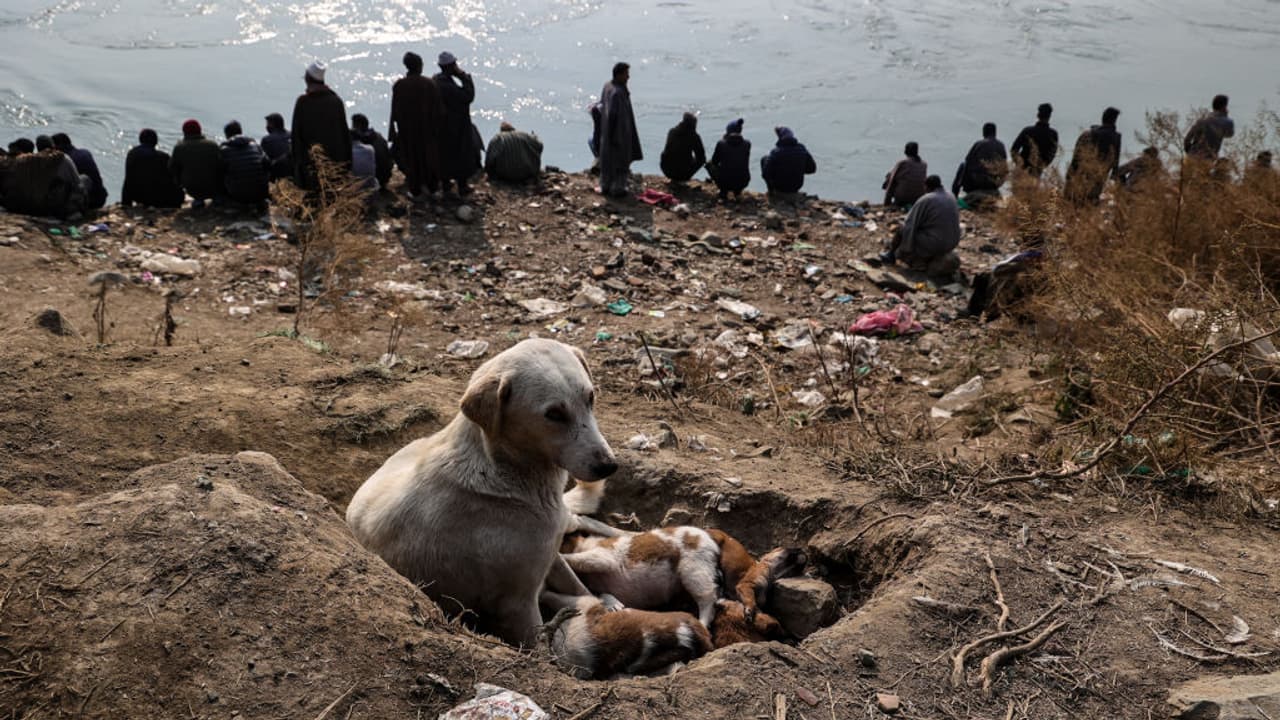A disturbing incident of 17 stray puppies being fatally poisoned in Kerala has highlighted a growing trend of animal cruelty. Humane solutions like the Animal Birth Control program faces significant challenges in the state.
Kerala has once again become the center of animal cruelty concerns following a disturbing incident where 17 stray puppies were fatally poisoned in Koratty. The tragedy has drawn widespread condemnation amid growing misinterpretations of recent Supreme Court directives on stray animal management.
The Koratty Incident
A heart-wrenching video circulating on social media shows month-old puppies in their final moments, lying motionless among their deceased siblings after allegedly consuming poison. The footage has sparked outrage, with animal activist ‘Palakkadan Changathi’ condemning the barbaric act that reflects humanity’s declining empathy toward vulnerable animals.
This incident mirrors similar cases across Kerala, where animal poisoning has become an increasingly common response to stray dog concerns. Earlier this year, nine stray dogs including puppies were found poisoned near a mosque in Tripunithura, while mass killings were reported in Chathari ward and Thrikkakara, where hundreds of dogs were allegedly killed and buried with local administrative involvement. Similar incidents were also reported in Idukki, where hundred of dogs were allegedly killed by the authorities.
Legal Framework Against Animal Cruelty
India’s animal protection laws, while comprehensive in scope, remain woefully inadequate in deterrence. Under the Prevention of Cruelty to Animals Act, 1960, the maximum penalty for even the most heinous crimes against animals—including poisoning, beating, or torturing—is merely Rs 50 for first-time offenders and Rs 100 for repeat violations within three years.
The Bharatiya Nyaya Sanhita (BNS), which replaced the Indian Penal Code in July 2024, has brought some improvements. Section 325 of the BNS now addresses killing or maiming animals with enhanced penalties, while Section 62 covers attempts to harm animals. However, critics note that sexual abuse against animals, previously punishable under Section 377 of the IPC with up to 10 years imprisonment, is no longer criminalized under the new framework.
A proposed Amendment to the Prevention of Cruelty to Animals Act, 2022, seeks to introduce significant reforms including fines ranging from Rs 1,000 to Rs 75,000 and imprisonment up to five years for severe cases of “gruesome cruelty.” The bill also recognizes five fundamental freedoms for animals and makes certain offenses cognizable, allowing arrests without warrants. Despite widespread support from parliamentarians and animal welfare advocates, the bill remains stalled due to legislative priorities and bureaucratic inertia.
Supreme Court Directive Misinterpreted
The recent poisoning incidents have intensified following widespread misinterpretation of the Supreme Court’s August 2025 order on stray dog management. While the Court initially directed removal of stray dogs to shelters in Delhi-NCR, it later modified its stance following nationwide protests from animal rights groups.
The revised Supreme Court directives explicitly prohibit indiscriminate killing of stray animals, mandating instead that dogs be sterilized, vaccinated, and returned to their original locations. Only animals showing aggressive behavior or confirmed rabies cases are exempt from release. The Court has also prohibited feeding stray dogs on public roads while requiring municipal authorities to create designated feeding spaces.
Kerala’s Stray Dog Crisis
Kerala faces a significant stray dog challenge, with the state recording around 15 rabies deaths through August 2025, of which 11 were attributed to stray dogs. The 2019 livestock census estimated Kerala’s stray dog population at 2.89 lakh, though officials believe numbers have increased substantially.
The state’s Animal Birth Control (ABC) program has faced implementation challenges despite substantial funding. Between 2016-2021, local governments spent over Rs 23 crore on ABC projects. However, only 37,000 stray dogs were vaccinated between September 2022 and August 2023, far short of the 70% coverage needed for herd immunity.
Recent efforts include mobile ABC units, with Kerala’s first portable sterilization facility becoming operational in Nedumangad in October 2025. The unit, designed with support from Indian Immunologicals Ltd and CAWA NGO, features facilities for simultaneous surgeries and can be relocated across panchayats.
Scientific Solutions Overlooked
Animal welfare experts state that successful stray dog management requires scientific, humane intervention rather than barbaric responses. Countries implementing comprehensive Animal Birth Control and vaccination programs have demonstrated significant success in managing both population growth and rabies transmission.
The recurring incidents of animal cruelty in Kerala highlight the urgent need for stronger legal deterrents, effective implementation of humane population control measures, and comprehensive public education about coexistence with community animals.
